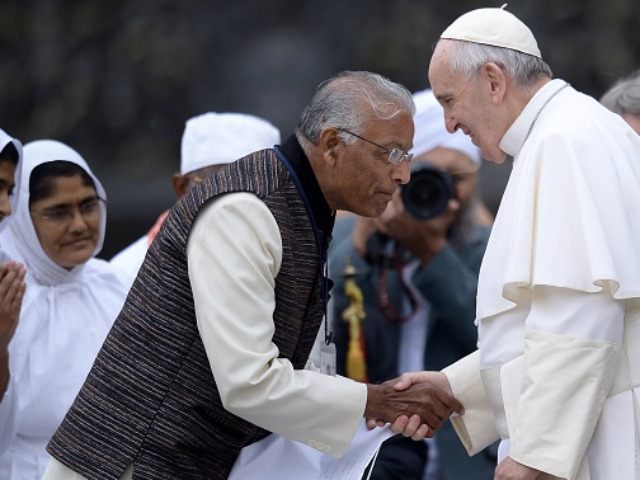Yale theology professor Miroslav Volf argues that all religions are basically the same—equally prone to fanatical violence and to peaceful love of neighbor—and thus should be treated in exactly the same way.
In the wake of the extraordinarily brutal jihadist attacks perpetrated on innocent civilians in Paris Friday, Volf suggests in an article in the Washington Post that we look at religion as a single reality rather than making distinctions between different religions.
Volf is author of the 2012 book Allah: A Christian Response, where he “makes an unprecedented argument for effecting a unified understanding between Islam and Christianity,” according to the Amazon summary of the text.
“The data does not support the claim that world religions are by nature violent. They are likely to become violent under certain circumstances,” Volf contends in his essay, building on the implicit assumption that “religions” as such can be lumped together as a homogeneous, undifferentiated set of theistic worldviews.
In his article, Volf takes the opposite view toward religion from that of the late Christopher Hitchens, who argued in his 2007 work God Is Not Great: How Religion Poisons Everything that religion as such is an essentially venomous phenomenon that should be eradicated. The second chapter of Hitchens’ work was simply titled “Religion Kills.”
Organized religion, Hitchens wrote, is “violent, irrational, intolerant, allied to racism and tribalism and bigotry, invested in ignorance and hostile to free inquiry, contemptuous of women and coercive toward children.”
But where Volf’s thesis that religion is important and beneficial for a globalized world is diametrically opposed to Hitchens’, his underlying supposition is the same: religions all stand and fall together because they are virtually interchangeable versions of the same thing.
“Put the glove of religion on the hand of either a revolutionary or a statesman,” Volf writes, and it “will more likely than not turn violent.” The problem, he suggests, is not with this religion or that one, but with any religion when it mixes with politics or statecraft.
Volf also makes the remarkable assertion that all major religions share three key characteristics, namely that they consider all people to be morally equal, that they believe in and promote religious liberty, and that they all hold to a separation of religion and politics. The assertion is remarkable because it is demonstrably false.
Islam—to take the obvious example—holds to none of these supposedly universal elements of religion, as can be gleaned from even a cursory study of its history and basic tenets. It places people on different strata depending on sex and belief, rejects religious freedom and denies a separation of religion and politics.
In fact, any student of the history of religions is aware that the three supposedly universal values of “religion” presented by Volf all originated with Christianity.
Treating all religions as one is not only a theological error, it is also politically and socially destructive. To tar—or gild—all religions with the same brush risks missing important distinctions that enable some religions to integrate themselves smoothly and seamlessly into western society while preventing others from doing so.
This, unfortunately, is a message that many, including the President of the United States, simply refuse to hear.

COMMENTS
Please let us know if you're having issues with commenting.